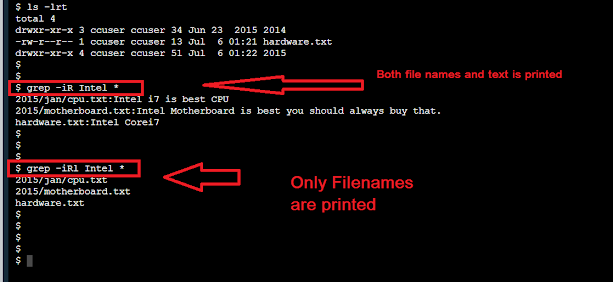

For example, performing a customized grep search on the word under the cursor: One of the advantages of using an external command, is that the search is sometimes much more customizeable than Vim's built-in commands. findstr.vim : Using MS-Windows findstr utility to search for text with Vim.grep.vim : Grep search tools integration with Vim.

In addition there are plugins to integrate these utilities with Vim:
Search for text in files in linux grep nr windows#
See :help :grep, :help 'grepprg', and Search using quickfix to list occurrences for ways to customize this, either to make it work on your system or to do something else entirely! The above example will work on many Unix-based systems (which have grep in the path), and on many Windows systems (where Vim will try to use findstr). But, remember to do it within Vim using :grep, so that you have the output available in Vim to view and navigate by!ĭepending on your system, you may find that a command like the following will quickly search files: If you want to speed up searching in files, and you don't need the power of Vim's regular expressions or its ability to detect file encodings, you can use an external program (traditionally grep) for searching. Using external programs for fast searches

Note that autocmds must be enabled in order for vimgrep to work for remote or archived files, since Vim's editing of such files depends on plugins using autocmds. You will then need to enter a command such as :cw to open the quickfix window, then press Enter to see it. Another is to use the j flag in the search, to prevent jumping to the first match automatically. One workaround is to type :e and press Enter to reload the file. This simple addition should work in any of the examples given in this tip, including mappings and abbreviations.Īn unfortunate side effect of disabling autocmds in this way is that you may find syntax highlighting is off when Vim displays the result. Use of grep and lgrep depend on the external application they point to, but use of vimgrep and lvimgrep is as follows: The commands : lnext and :lprevious can be used to cycle between found results. Both of these lists can be used to instantly jump to the matching line in whatever file it occurs in. "lgrep" and "lvimgrep" fill the "location list," which is local to the current window, and can be opened with :lw or :lopen. "grep" and "vimgrep" fill the "quickfix list", which can be opened with :cw or :copen, and is a list shared between ALL windows. These commands all fill a list with the results of their search. Keep in mind though, that vimgrep can often be slower than grep, which will call an external program to do the dirty work. "vimgrep" and "lvimgrep" are part of Vim, and therefore are good for using on any system, especially if you want to use Vim-style regular expressions in your search. "grep" and "lgrep" use an external application to perform the search, and are great if you are running Vim on a system with a good file searching utility, if you are accustomed to using an external application for your searches, or if your search is not a complicated one. Vim provides these commands for searching files:Īll of these commands can be used to search for a regular expression in whatever files you specify.

Vim has this feature, but it is a little hard to find. 5 Alternate Setup With Hotlinked Window Instead of Scrolling ListĪ useful feature in many text editors is the ability to search for regular expressions in multiple files.4 Using external programs for fast searches.My CPU is Intel(R) Core(TM) i3-3110M CPU 2.40GHz. I am using Ubuntu 12.04 on a not so powerful laptop ) there isn't a big difference in running time if I suppress the output with piping STDOUT to /dev/null. It's not that big stack of files (kudos to 10⁷ files - a messys dream) but I created 100k files (400 MB overall) with for i in do head -c 10 /dev/urandom > dummy_$i doneĪnd made some tests for pure curiosity (the keyword 10 I was searching is chosen randomly): > time find.


 0 kommentar(er)
0 kommentar(er)
